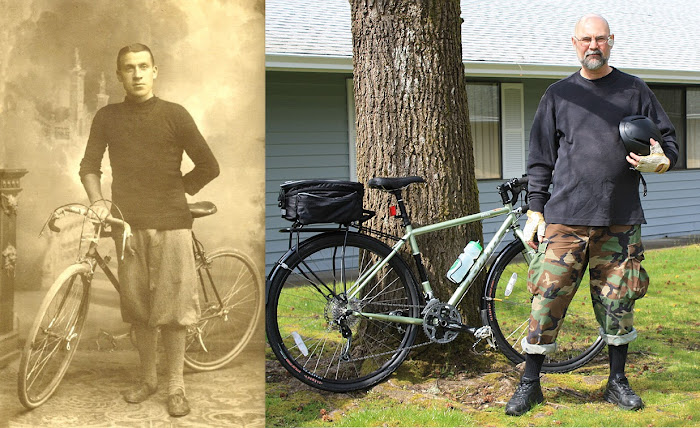 |
Asleep on my lap in bed.
|
Three days ago I had the sad duty of accompanying my mother's cat out of this life. A cherished family member, he's figured many times in these pages,
most recently only weeks ago.
Since I was a child I've seen many pets die. It's been educational, in some ways more than human deaths. There's so little drama when an animal goes, so little desperation. Our pets seem to die as they live: with acceptance, if a little apprehension. When they become too sick to sleep well, you see this come into their eyes.
He was just ten years old, but probably had liver cancer for some time before it became debilitating, and therefore noticeable to us. Suddenly he became lethargic, lost his appetite, and started holing up in dark places. Most alarming, he refused to purr, no matter how much affection was lavished upon him. By the time we could get to the vet, I was fairly sure what I was going to hear.
That same day, before our appointment, he began crying, loudly and urgently. Mostly from fear of abandonment, it seemed. Therefore I stayed close to him, except when he was in the lab. At last the attendant brought him into the examination room, laid him on an old pink towel, and left us alone for a few minutes. He lay on his side, his breathing shallow, a dull, half-open expression in his eyes, as if in meditation. I stroked his soft, thick fur and struggled to tell him what a good kitty he was, how much I loved him, and to thank him for taking care of Mom these last years.
At last the doctor came. I fondled the kitty's ears as she searched for a vein. Her calm competence at the end of a long workday helped keep me from crying, as long as I breathed mindfully and remained silent. I did my best to remain present, and not confuse the observer (me) with the events.
It came fast when it came, with so little disturbance the vet had to tell me he was gone. I stopped petting and stepped back from the table, and she swept him up in the towel. The last I saw of him was his head and ears, disappearing through the swinging door.
You and I will be lucky to go so softly.
One of the great strengths of Buddhism is its recognition of the universality of life. I've known too many animals to believe there is some qualitative difference between sentient beings. Cats are born; they live, to the best of their ability; and they die. Scientists warn us not to be anthropomorphic about this, but I warn them back not to ignore the evidence. If it's true we can't know what's going on in an animal's head, it's also true we can't know what's going on in each other's heads, either. Yet decent people don't assume that we can't fathom the feelings of a crying stranger, just because when
we do it, we're sad, scared, or in pain.
That would be stupid. And as I've often said, nothing stupid is Buddhist.
Animals may love differently from humans, but they love. And anything that loves is worthy of love.
Also: life – all life – is brief and unrenewable. So love now.
Because sooner than later, we all pass through that swinging door.
We called him Sherlock, by the way. We'll never know what his real name was.






